
Open
Developmental Licence Playbook
Last Update: March 3, 2026
Canada
Access wireless spectrum to test a business idea
Other Support
At a glance
Funding available
Financing goals
Integrate new technologies
Research and experimental development
Reduce the ecological footprint
Eligible Funding
- No Condition
Timeline
- Open Date : November 14, 2019
Eligible candidates
Eligible Industries
- Manufacturing
- Transportation and warehousing
- Professional, scientific and technical services
- Health care and social assistance
- Public administration
Location
- Canada
Legal structures
- Financial cooperative
- Non-profit
- Public or Parapublic institution
- For-profit business
- Sole proprietorship
- Social economy enterprise
- Non-financial cooperative
Annual revenue
- All revenue ranges
Organisation size
- All organization sizes
Audience
- All groups
Non-profit candidates
Sector of operation
- Research
- Hospitals and Rehabilitation
- Nursing Homes
- Other Health Services
- Economic, Social and Community Development
Target groups
- Business owners / entrepreneurs
- Academia / students
Revenue structures
- All structures
Scope
- National
Overview
The Developmental Licence Playbook provides innovators in Canada with temporary access to wireless spectrum for testing new technologies and services across sectors such as health care, transportation, smart cities, and more. While the program does not specify a maximum funding amount, it enables eligible research and technology advancement activities by granting developmental licences for up to one year, renewable, with certain licence categories offered at no cost.
Activities funded
- Testing and validation of new wireless technologies and services.
- Deployment and assessment of fixed and mobile radio systems using innovative equipment.
- Piloting advanced mobile, IoT, and smart city solutions using wireless spectrum.
- Trialing satellite technology or earth/space station systems for communication advancements.
- Conducting research-oriented trials in sectors such as healthcare, transportation, manufacturing, agriculture, public safety, and academic research.
Examples of admissible projects:
$ 500,000
Testing an innovative smart city wireless network
$ 300,000
Developing a wireless communication system for smart transportation
$ 500,000
Establishing a wireless communication network for manufacturing
$ 250,000
Testing new land mobile wireless systems for public safety
$ 350,000
Implementing wireless satellite technology in remote health care centers
$ 450,000
Creating a wireless network for smart agriculture
Eligibility
- The project must relate to research and development activities.
- The project must focus on advancing technology.
- The project must have a defined, limited duration.
- The project must not interfere with current or anticipated systems.
- The project must not be used for a commercial trial involving financial cost recovery from users.
Who is eligible?
- Wireless technology innovators
- Companies developing new communication services
- Organizations involved in research and development of wireless systems
- Businesses creating solutions in sectors such as health care, transportation, smart cities, manufacturing, agriculture, or public safety
- Academic and research institutes testing wireless technologies or satellite systems
Who is not eligible
- Projects intended for commercial trials involving financial cost recovery from users.
Eligible expenses
- Fees for developmental radio licences as set out in the Radiocommunication Regulations (covering all authorized transmit and receive frequencies for each station).
- Fees for developmental earth/mobile satellite licences as per the specified fee schedule in the Guidelines for the Submission of Applications to Provide Mobile Satellite Services in Canada.
Eligible geographic areas
- All regions within Canada.
Selection criteria
- The project must relate to research and development activities.
- The project must focus on advancing technology.
- The testing or trial must be time-limited.
- The project must not interfere with current or anticipated systems.
- The project must not be used for a commercial trial that involves financial cost recovery from users.
How to apply
1
Complete Letter of Intent
- Access the Letter of Intent form on the Innovation, Science and Economic Development Canada (ISED) website.
- Provide detailed information about your testing plan, including project objectives, timelines, and technical specifications.
2
Submit Letter of Intent
Submit the completed Letter of Intent through the ISED website.
3
Assessment of Intent
- ISED will review your submitted Letter of Intent.
- ISED will communicate with you to ensure the issuance of a suitable licence for your testing activity.
4
Payment and Issuance of Licence
- Pay the associated fees for the licence, depending on the type of testing.
- Receive the developmental licence from ISED.
5
Conduct Testing
Proceed with the testing activities under the conditions specified in the licence.
6
Renewal and Submission of Test Results
- Renew the licence if the conditions continue to be met and if needed.
- Optionally submit the results of your testing to ISED to help them evolve their technology framework.
Additional information
- Developmental licences are generally granted for up to one year and may be renewed if conditions continue to be met.
- No fees currently apply to developmental spectrum licences.
- Applicants are invited, on a voluntary basis, to submit final test results upon completion of the trial.
- All project technical information provided at the time of application is held in confidence by ISED.
Apply to this program
Frequently Asked Questions about the Developmental Licence Playbook Program
Here are answers to the most common questions about the Developmental Licence Playbook. This section explains what the program is, how much funding is available, eligibility requirements, application deadlines, and other important details to help you determine if this grant is right for your business.
What is the Developmental Licence Playbook?
Who is eligible for the Developmental Licence Playbook program?
What expenses are eligible under Developmental Licence Playbook?
Where is the Developmental Licence Playbook available?
Is the Developmental Licence Playbook a grant, loan, or tax credit?
Who are the financial supporters of the Developmental Licence Playbook?
Apply to this program
More programs like this

Grant and FundingClosed
Industrial Research Assistance Program (IRAP) – AI Assist
Supports Canadian SMEs in adopting and integrating advanced AI solutions
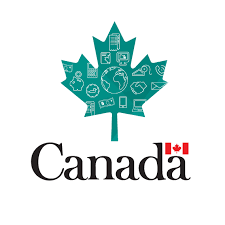
Tax CreditsOpen
Clean Technology Manufacturing (CTM) Investment Tax Credit (ITC)
Incentivize Canadian companies to invest in clean technology
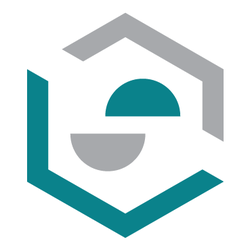
Partnering and CollaborationGrant and FundingOpen
Strategic Innovation Fund (SIF)
Strategic Innovation Fund supports transformative Canadian economic investments

Wage Subsidies And InternsOpen
Industrial Research Assistance Program (IRAP) — Youth Employment Program (YEP)
Money to hire a student

Researchers And FacilitiesPartnering and CollaborationWage Subsidies And InternsOpen
Mitacs Accelerate
Connect organizations with academia for research and innovation collaboration

Grant and FundingClosed
ISED — Artificial intelligence (AI)
Supports testing innovative AI prototypes for Canadian government needs

Grant and FundingOpen
Global Innovation Clusters
Financial assistance to work in collaboration on innovation projects
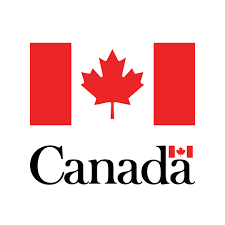
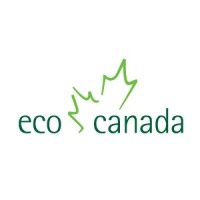
Wage Subsidies And InternsOpen
ECO Canada — Student Work Placement Program
Money to hire students for an environmental co-op
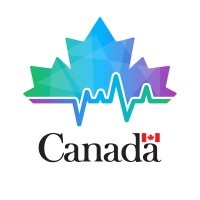
Grant and FundingClosed
Substance Use and Addictions Program (SUAP)
Supports innovative projects addressing substance use prevention and treatment
Sign up to our platform to access the Developmental Licence Playbook information sheet for free
Get access to 10,000+ programs, practical guides, personalized alerts, and an AI assistant to support your grant applications.